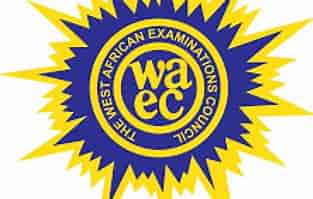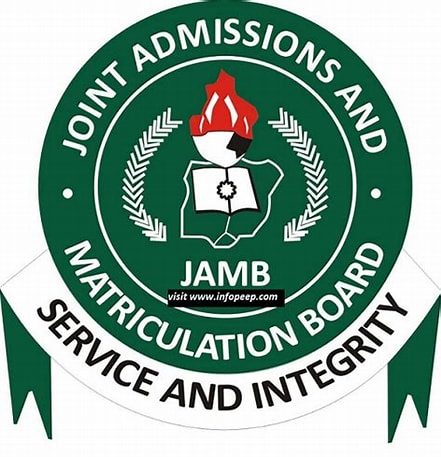Education News
Available Scholarship Opportunities for African Students
 African students seeking to further their education, whether within Africa or abroad, have access to a diverse range of scholarship opportunities designed to support their academic and professional a
African students seeking to further their education, whether within Africa or abroad, have access to a diverse range of scholarship opportunities designed to support their academic and professional a
...
 African students seeking to further their education, whether within Africa or abroad, have access to a diverse range of scholarship opportunities designed to support their academic and professional aspirations. These scholarships, offered by governments, universities, private organizations, and international bodies, aim to address financial barriers, promote academic excellence, and foster leadership and innovation across the continent. As of February 27, 2025, numerous programs are available, catering to undergraduate, master’s, PhD, and vocational students. Below is an overview of some prominent scholarship opportunities currently accessible to African students, highlighting their benefits, eligibility criteria, and application details.
African students seeking to further their education, whether within Africa or abroad, have access to a diverse range of scholarship opportunities designed to support their academic and professional aspirations. These scholarships, offered by governments, universities, private organizations, and international bodies, aim to address financial barriers, promote academic excellence, and foster leadership and innovation across the continent. As of February 27, 2025, numerous programs are available, catering to undergraduate, master’s, PhD, and vocational students. Below is an overview of some prominent scholarship opportunities currently accessible to African students, highlighting their benefits, eligibility criteria, and application details.
1. TETFund Scholarships (Nigeria)
The Tertiary Education Trust Fund (TETFund) in Nigeria provides funding for academic staff and students at public tertiary institutions. In 2025, TETFund’s budget allocation of N940.5 billion supports postgraduate scholarships, both locally and internationally, focusing on staff development and research.
Benefits: Covers tuition, stipends, and research costs; historically, over 42,000 scholars have benefited from such initiatives.
Eligibility: Open to Nigerian students and academic staff at public universities, polytechnics, and colleges of education, with a focus on academic merit and institutional needs.
Application: Managed through individual institutions; students should contact their university’s TETFund desk officer for deadlines and processes.
2. Mastercard Foundation Scholars Program
This global initiative partners with universities worldwide to provide comprehensive support to talented, economically disadvantaged African students.
Benefits: Full tuition, accommodation, living stipends, mentorship, and internship opportunities.
Eligibility: Open to African students demonstrating academic excellence and leadership potential, typically targeting undergraduate and master’s levels. Partner institutions include Arizona State University (ASU), University of Cape Town, and McGill University.
Application: Varies by institution; for example, ASU’s fully funded graduate scholarships for Africans (online or onsite) are currently open for 2025, with applications accessible via their website.
3. DAAD Scholarships (Germany)
The German Academic Exchange Service (DAAD) offers fully funded scholarships for African students pursuing master’s or PhD degrees at German universities.
Benefits: Monthly stipend (approximately €934), health insurance, travel allowance, and tuition waivers.
Eligibility: Nationals from Sub-Saharan Africa with a bachelor’s degree (for master’s) or master’s degree (for PhD), strong academic records, and relevance to development-related fields.
Application: Deadlines vary by program; the Leadership for Africa (LFA) Scholarship, for instance, typically opens annually with deadlines around mid-year.
4. Commonwealth Scholarships (UK and Commonwealth Countries)
Funded by the UK government and other Commonwealth nations, these scholarships support students from African Commonwealth countries (e.g., Nigeria, Ghana, Kenya) for master’s and PhD studies.
Benefits: Covers tuition, airfare, living expenses, and research costs.
Eligibility: Citizens of Commonwealth countries with a minimum upper second-class degree; the Commonwealth Distance Learning Scholarships also support part-time master’s programs.
Application: Applications for 2025/2026 cycles often open in late 2024 or early 2025 via the Commonwealth Scholarship Commission website.
5. Mo Ibrahim Foundation SOAS Scholarships (UK)
Offered through the School of Oriental and African Studies (SOAS) at the University of London, this scholarship targets African PhD students.
Benefits: Full tuition, £5,000 annual stipend, and travel costs.
Eligibility: African nationals pursuing PhDs in governance-related fields, with a deadline of March 31, 2025.
Application: Apply directly through SOAS; details are available on their scholarship portal.
6. Aston University Ferguson Scholarship (UK)
This fully funded opportunity supports African students pursuing master’s degrees in the UK.
Benefits: £22,500 scholarship plus £6,000 for expenses.
Eligibility: Open to African students with strong academic backgrounds; deadline is July 31, 2025.
Application: Accessible via Aston University’s website.
7. Tony Elumelu Foundation Grant (Africa)
While not a traditional scholarship, this entrepreneurship program supports African students and young professionals with business training and seed funding.
Benefits: $5,000 grant and 12 weeks of business training.
Eligibility: Open to citizens of African countries with innovative business ideas; deadline for 2025 is February 28, 2025.
Application: Apply through the Tony Elumelu Foundation’s online portal.
8. Fulbright Foreign Student Program (USA)
This prestigious U.S. government program enables African graduate students, young professionals, and artists to study or conduct research in the United States.
Benefits: Full tuition, living stipend, airfare, and health insurance for 6 months to 1 year.
Eligibility: Requires a bachelor’s degree or equivalent; open to all African countries with varying deadlines (typically May-October annually).
Application: Managed by U.S. embassies in each country; check local embassy websites for 2025/2026 deadlines.
9. Aga Khan Foundation International Scholarship Program
This need-based program supports African students pursuing postgraduate studies worldwide.
Benefits: Combination of grants and loans (50% repayable) covering tuition and living costs.
Eligibility: Outstanding students from select African countries (e.g., Kenya, Uganda, Tanzania) with no other funding means; preference for master’s applicants.
Application: Annual cycle opens in January, with deadlines around March; apply via the Aga Khan Foundation’s regional offices.
10. University of Glasgow African Excellence Award (UK)
Aimed at high-achieving African students, this scholarship supports one-year master’s programs.
Benefits: Full tuition fee waiver (up to 15 awards for 2025/2026).
Eligibility: African nationals with an offer for a September 2025 postgraduate program; deadline is March 31, 2025.
Application: Submit via the University of Glasgow’s scholarship portal.
Additional Opportunities
Chinese Government Scholarships: Open to African students for study in China, covering tuition, accommodation, and stipends; applications for 2025/2026 typically open November 2024-January 2025 via the Chinese Embassy or CSC portal.
Swedish Institute Scholarships for Global Professionals: Fully funded master’s scholarships for Africans, with applications opening February 2025.
Coimbra Group Short Stay Scholarship (Europe): Supports young African researchers for 1-3 month research visits; deadline often mid-year.
Tips for Applying
Start Early: Scholarship deadlines vary, with many closing between March and July 2025 for the 2025/2026 academic year.
Tailor Applications: Highlight academic achievements, leadership, and community impact, aligning with each program’s goals.
Check Requirements: Some require language proficiency (e.g., IELTS for UK programs, HSK for China), while others waive these (e.g., select Mastercard or Tony Elumelu programs).
Leverage Resources: Websites like AfterSchoolAfrica, Scholars4Dev, and OpportunitiesForAfricans list updated opportunities and application guides.
Conclusion
African students have a wealth of scholarship options in 2025, ranging from fully funded academic programs to entrepreneurial grants. These opportunities not only alleviate financial burdens but also empower students to contribute meaningfully to their communities and the continent’s development. By researching specific eligibility criteria and deadlines, students can position themselves to seize these transformative opportunities. Whether pursuing studies in STEM, humanities, or business, the path to educational advancement is increasingly accessible for Africa’s brightest minds.
Update News on WAEC and JAMB in Nigeria
Introduction
 The West African Examinations Council (WAEC) and the Joint Admissions and Matriculation Board (JAMB) are pivotal institutions in Nigeria’s educational landscape, overseeing critical examin
The West African Examinations Council (WAEC) and the Joint Admissions and Matriculation Board (JAMB) are pivotal institutions in Nigeria’s educational landscape, overseeing critical examin

...
Introduction
 The West African Examinations Council (WAEC) and the Joint Admissions and Matriculation Board (JAMB) are pivotal institutions in Nigeria’s educational landscape, overseeing critical examinations that shape the academic futures of millions of students. As of February 27, 2025, both bodies have been active with developments ranging from examination schedules and registration updates to policy shifts and stakeholder reactions. This update provides the latest news on their activities, reflecting the current state of secondary and tertiary education entry processes in Nigeria.
The West African Examinations Council (WAEC) and the Joint Admissions and Matriculation Board (JAMB) are pivotal institutions in Nigeria’s educational landscape, overseeing critical examinations that shape the academic futures of millions of students. As of February 27, 2025, both bodies have been active with developments ranging from examination schedules and registration updates to policy shifts and stakeholder reactions. This update provides the latest news on their activities, reflecting the current state of secondary and tertiary education entry processes in Nigeria.
WAEC Updates
WAEC, responsible for the West African Senior School Certificate Examination (WASSCE), has been in the spotlight as preparations for the 2025 examination cycle gain momentum. Below are the key updates:
2024 WASSCE Results RecapThe 2024 WASSCE results, released on August 12, 2024, showed that 1,301,949 candidates (72.9% of 1,685,889 total participants) achieved credits in five subjects, including Mathematics and English Language. However, this marked a 7.6% performance decline from 2023, with 215,267 results withheld due to malpractice. WAEC’s Head of Nigeria Office, Amos Dangut, described the April 30 to June 24, 2024, examination as successful despite logistical challenges, including security concerns and inflation-related financial pressures.
2025 WASSCE PreparationsWhile the official timetable for the 2025 WASSCE has not yet been released, WAEC is expected to follow its traditional May-June schedule for school candidates. Posts on X indicate growing anxiety among students and parents about rising registration costs, with some noting fees have become a burden amid Nigeria’s economic challenges. Historically, WAEC has maintained a commitment to accessibility, and stakeholders anticipate an announcement soon regarding registration dates and fees.
Policy on Underage CandidatesFollowing a Federal Government directive in August 2024, WAEC barred underage candidates from sitting for the WASSCE, aligning with a policy requiring students to be at least 17½ by the time of university admission. This rule, effective from the 2025 academic session, has sparked mixed reactions. While some praise it for ensuring maturity, others argue it restricts gifted younger students, especially after a Delta State High Court injunction in October 2024 temporarily halted a similar JAMB policy.
Community Support InitiativesLawmakers have stepped in to alleviate financial pressures. For instance, Hon. Chinedu Ogah paid N16.7 million in 2024 to cover WAEC and JAMB fees for 1,007 students in Ebonyi State, while Hon. Esosa Iyawe recently completed a WAEC scholarship enrollment under his Educational Fund in Oredo.
JAMB Updates
 JAMB, which administers the Unified Tertiary Matriculation Examination (UTME) for tertiary institution admissions, has made significant strides and faced notable challenges as it prepares for the 2025 cycle. Here are the latest developments:
JAMB, which administers the Unified Tertiary Matriculation Examination (UTME) for tertiary institution admissions, has made significant strides and faced notable challenges as it prepares for the 2025 cycle. Here are the latest developments:
2025 UTME RegistrationRegistration for the 2025 UTME, which began on February 3, 2025, is set to close on March 8, 2025, with no extensions planned, according to JAMB’s statement on February 25, 2025. Over 1.5 million candidates have registered, aligning with projections. However, social media posts highlight a sharp fee increase—from N4,700 in 2023 to N12,000 in 2025—prompting concerns about affordability for low-income families. JAMB insists the fixed calendar, coordinated with WAEC and NECO, necessitates strict deadlines.
Policy Enforcement and Legal PushbackJAMB’s attempt to enforce a 16-year minimum age for tertiary admissions, effective from 2025, faced resistance. A Delta State High Court ruling in October 2024 restrained JAMB from implementing this policy pending further hearings, following a lawsuit by John Aikpokpo-Martins. The exception for 2024/2025 admissions remains, but the debate continues, with critics arguing it limits opportunities for younger students.
Program Suspensions: In January 2025, JAMB suspended admissions into the Law Faculty at Fountain University, Osogbo, for the 2025/2026 session, following a Council of Legal Education (CLE) directive. This came shortly after a similar suspension at eight other universities, including the Nigerian Police Academy, Wudil, for two sessions (2025/2026 and 2026/2027). JAMB cited compliance with CLE standards as the reason.
Support for InclusivityJAMB’s free UTME registration for people living with disabilities, launched in 2024, continues into 2025, earning praise from the National Association of Nigerian Students (NANS). The latest JAMBulletin, shared on X on February 24, 2025, by @JAMBHQ, details this and other initiatives under Registrar Prof. Ishaq Oloyede’s leadership.
Local Sponsorship Efforts: Hon. Esosa Iyawe launched a free JAMB registration exercise for 550 candidates in Oredo on February 24, 2025, complementing his WAEC efforts. Similarly, Hon. Okere provided free WAEC/JAMB registration for 274 candidates in Owerri Federal Constituency, as noted on their social media handles on February 20, 2025.
Stakeholder Reactions and Trends
Economic Concerns: Rising examination fees have dominated discussions on social media , lamenting the jump in JAMB costs, questioning the future for the poor. Inflation and currency depreciation are cited as key drivers.
Educational Platforms: Initiatives like @winexviv’s free JAMB/WAEC preparation platform, launched for 2025 candidates, reflect efforts to bridge access gaps, with promises of scholarship opportunities for high performers.
Fraud Concerns: Social media posts on X, such as @osunbiodun’s on February 24, 2025, reference past scandals like forged JAMB scores, underscoring ongoing efforts by both WAEC and JAMB to curb malpractice.
Conclusion
As of February 27, 2025, WAEC and JAMB remain central to Nigeria’s educational framework, adapting to economic, legal, and social pressures. WAEC’s focus on maintaining examination integrity and JAMB’s push for inclusivity and strict timelines highlight their evolving roles. However, rising costs and policy debates signal challenges ahead, prompting grassroots support from lawmakers and educators. Students and parents are urged to stay informed via official channels—WAEC’s website (waecdirect.org) and JAMB’s portal (jamb.gov.ng)—as the 2025 examination season approaches, with the promise of education as a pathway to opportunity hanging in the balance.

